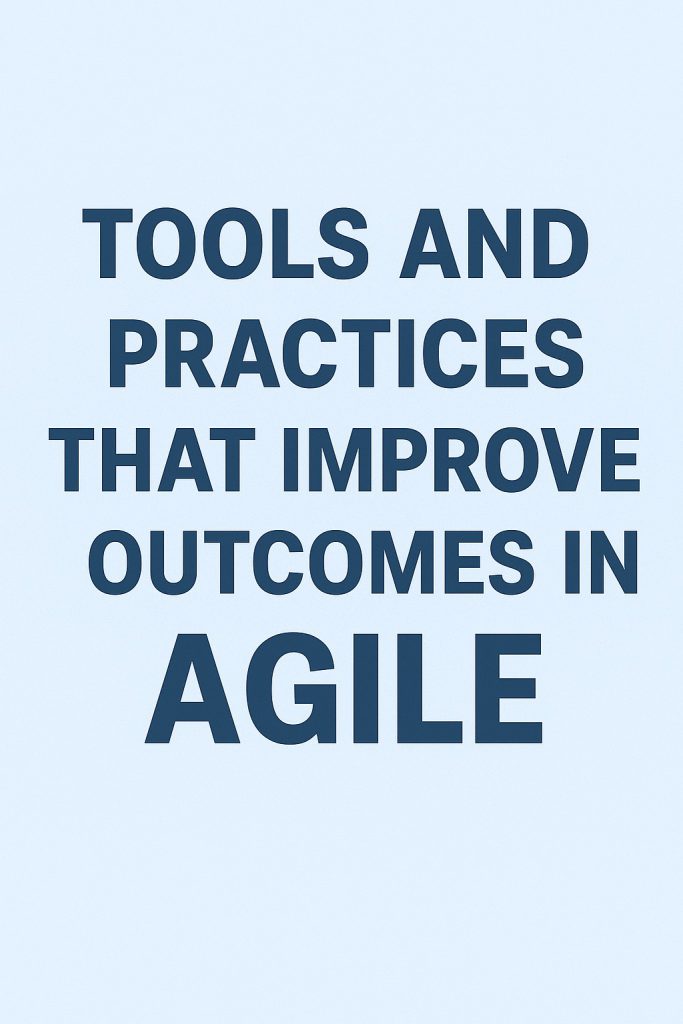Agile has transformed how teams plan, execute, and deliver work — but the truth is, agility without analytics is like flying blind. In today’s data-driven environment, every sprint, stand-up, and release should be informed by insights. Analytics in Agile ensures that decisions are based on facts, not assumptions. It bridges the gap between what teams do and why it matters — turning iteration into intelligence.
So, what does this really mean for Agile teams and organizations trying to improve performance, speed, and customer satisfaction? Let’s break it down.
- Why Analytics Matters in Agile Workflows
Agile was built on adaptability — the ability to respond to change quickly. But agility doesn’t mean guesswork. It means learning fast and adjusting based on real data. That’s where analytics becomes essential.
In a Scrum environment, for instance, teams track metrics such as velocity, burndown rates, and cycle times to assess performance. But modern analytics goes further — helping you identify patterns, predict risks, and improve forecasting accuracy.
Data-driven Agile allows project managers and Scrum Masters to:
Measure progress with precision instead of intuition.
Identify bottlenecks early.
Improve sprint predictability.
Enhance collaboration by aligning teams around measurable goals.
Prove business value delivered per sprint.
In a fast-changing business landscape, organizations that combine Agile and analytics don’t just move fast — they learn fast.
Keywords: Agile analytics, data-driven Scrum, Agile metrics, predictive analytics in Agile, data visualization in Scrum, continuous improvement, Agile performance tracking.
- Tools That Bring Data to Life
Analytics in Agile isn’t just about numbers — it’s about the tools that help visualize and interpret them. Today’s Agile teams have access to a wide range of technologies designed to improve transparency, accuracy, and efficiency. Here are some that stand out:
1. Jira
A favorite among Scrum and Kanban teams, Jira enables teams to track sprint progress, visualize workflow stages, and analyze performance trends. Its dashboards show burndown charts, cumulative flow diagrams, and velocity charts — critical for continuous improvement.
2. Power BI
For teams that want to go beyond simple metrics, Power BI connects Agile data with organizational KPIs. It integrates multiple data sources to create real-time dashboards that link Agile outcomes to business objectives.
3. Tableau
Tableau provides dynamic visual analytics that help teams spot trends and outliers quickly. It’s especially valuable for organizations managing large-scale Agile transformations where multiple teams contribute to enterprise-level goals.
4. Google Data Studio
This free, user-friendly tool allows teams to build simple visual dashboards — perfect for startups or small teams tracking sprint metrics without complex setup.
5. Agile-Specific Tools
Platforms like VersionOne, Monday.com, and ClickUp also offer built-in Agile analytics that integrate sprint metrics with productivity, time tracking, and stakeholder reporting.
Each tool supports the Agile mindset — transparency, adaptability, and collaboration — by turning data into actionable insight.
- Best Practices for Using Analytics in Agile
Tools alone don’t create impact — the right practices do. Here’s how top-performing Agile teams use analytics effectively:
1. Define Success Metrics Early
Don’t wait until the sprint ends to decide what success looks like. Define measurable objectives that align with business goals — such as sprint velocity, lead time, or customer satisfaction scores.
2. Use Data to Drive Retrospectives
Analytics can make sprint retrospectives far more effective. Instead of subjective opinions, teams review metrics like cycle time or issue resolution rates to identify what worked and what didn’t.
3. Combine Qualitative and Quantitative Insights
Numbers don’t tell the full story. Combine data with feedback from team members and stakeholders. This holistic approach gives you both the “what” and the “why.”
4. Track Business Value, Not Just Activity
Agile success isn’t just about how many story points you closed — it’s about the value delivered. Use analytics to tie team output to customer or business outcomes.
5. Continuously Improve
Data should drive improvement, not punishment. Encourage teams to see analytics as a mirror, not a microscope — a way to grow together, not to blame.
Keywords: Agile insights, sprint performance metrics, continuous delivery, data-driven
retrospectives, Agile visualization, value-driven Scrum.
- The Future: Predictive Analytics Meets Agile
As AI and machine learning become more accessible, predictive analytics is taking Agile to the next level. Imagine forecasting sprint completion risks before they happen, or predicting which backlog items are likely to face delays.
Tools like Azure DevOps Insights, Atlassian Intelligence, and AI-driven Scrum dashboards are already helping organizations anticipate blockers and adapt faster.
The synergy between Agile frameworks and advanced analytics isn’t about replacing intuition — it’s about empowering it. Teams that master both disciplines gain the agility to pivot quickly, backed by the confidence of real-time data.
- Why Analytics Skills Are Now Essential
It is no longer enough to “do Agile.” Today’s professionals must understand how to interpret Agile data to lead smarter and deliver better outcomes. Whether you’re a Scrum Master, Business Analyst, or Project Manager, data literacy has become a must-have skill.
That’s why leading training organizations like ScrumConsult emphasize Agile analytics, Lean Six Sigma principles, and data-driven project management in their programs helping professionals not just implement Agile, but master it strategically.
Ready to take your skills to the next level?
Enroll today and transform your career with ScrumConsult’s professional training programs. From Scrum Master Certification in Lagos to Agile Expert, Project Management, Business Analysis, Lean Six Sigma Green & Black Belt, SMC, PSM, and CSM, we provide the tools and knowledge you need to thrive in a data-driven world.
📌 Visit scrumconsult.com
today to get started.

